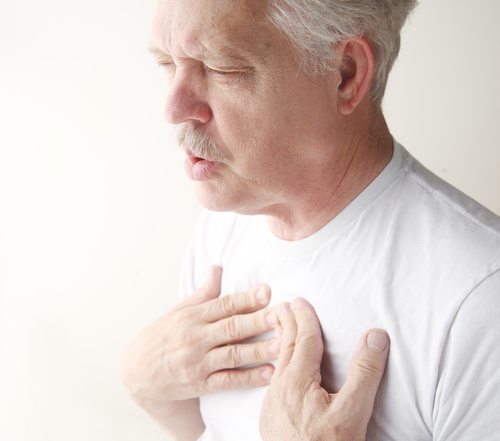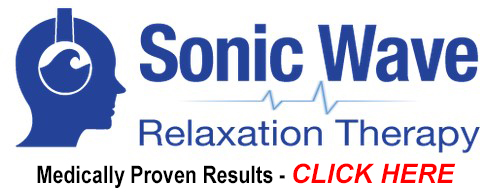I know what you’re probably thinking: you’ve been breathing since you were a baby and it’s kept you alive this long so you must be doing something right. Well, not necessarily.
The truth is, most people actually breathe in a way that negatively impacts their health. In fact, improper breathing patterns are associated with sleep disorders, asthma, and rhinitis. How many times have we been told we must get 8 hours of sleep each night for our health, or we must drink 8 glasses of water per day for our health? And yet very little information or training is available on how we should breathe for our health.
Are You Guilty of Excessive Breathing?
Anytime the topic of breathing does come up, we are usually told to take big, deep breaths. But it turns out, this may not be the best advice. Overbreathing, also known as chronic hyperventilation syndrome, was initially documented during the civil war. It was in 1957 that a Russian scientist by the name of Dr. Buteyko came up with the phrase “disease of deep breathing” after researching the effects of overbreathing for more than a decade. What he found was that the sicker a patient got, the heavier they breathed. He also experimented on himself and discovered he could lower his blood pressure by bringing his breathing toward normal.
How to Tell if You’re an OverBreather and the Repercussions
You’re most likely waiting on baited breath to find out whether or not you’re guilty of breathing the wrong way. First of all, how do we even define overbreathing? It has been defined as, “breathing in excess of metabolic requirements of the body at that time.
Here are some common traits of overbreathing:
- Mouth breathing
- Frequent sighing
- Frequent sniffing
- Frequent yawning with big breaths
- Taking big breaths before speaking
- Chronic rhinitis (runny nose and nasal congestion)
- Breathing mainly from your upper chest
- Audible breath during sleep
- Sleep Apnea
- Noticeable or audible breathing during rest
- Erratic breathing
The repercussions of overbreathing include neurological, respiratory, cardiovascular, muscular, and gastrointestinal effects such as:
- Heart palpitations or missed heart beats
- Sharp chest pain
- Dizziness
- Cold hands and feet
- Headaches
- Feeling faint
- Tingling and numbness in extremities
- Anxiety
- Muscle cramping
- Acid reflux
- Impaired memory
- Allergies
What Causes Overbreathing?
There are numerous things that affect the way we breathe such as overeating, lack of exercise, asthma, and stress. Of these, stress is the biggest impact to our breathing. Let’s face it, most of us deal with a good amount of stress in our weekly if not daily lives. Stress causes us to breathe faster. And, the conventional advice to counteract the effects of stress by taking “big, deep, breaths” to release tension often worsens the situation.
In order to actually calm down and relax, the last thing we want to do is focus on taking big, deep breaths. It’s actually not the size of our breaths that counts but the pacing. Instead we should focus on breathing slower, softer and more steadily, and through our noses not our mouths.
Why does it matter whether we breathe through our mouth or nose? Because, according to the late Dr. Maurice Cottle, who founded the American Rhinologic Society in 1954, our noses perform at least 30 functions! Yes, they do far more than smell stuff and hold up our glasses. These 30 functions are very important to the lungs, heart and other organs.
Pssst, You’ve Got Some Nitric Oxide in Your Nose
But that’s good, it’s supposed to be there. Another benefit to breathing through our nose it that each time we do we carry a small amount of this beneficial gas into our lungs. Nitric oxide helps open our airways and blood vessels and also has antibacterial properties. So all of the germs and bacteria in the air stand far less of a chance of infecting our lungs and making us sick if we breathe through our nose.
Three Great Breathing Techniques for Improved Health
The key takeaways here are these: We all need to pay more and better attention to our breathing. We need to not focus on breathing deeper and getting as much oxygen into our lungs as possible, but rather to focus on slow, calm and steady breaths. And we need to at least inhale through our noses.
With these takeaways in mind, here are three techniques that will help you regulate your breathing so you can experience lower levels of stress and better overall health:
The Book Technique
During sleep we naturally breathe in a very slow and steady manner. Many of us will only take 5-7 breaths in one minute. Compare that to the 15-25 breaths we take during our waking hours and we instantly see most of us are overbreathing.
Here’s an easy technique to make our waking breaths slower and more efficient.
- Lie down on your back, either on your bed, the floor or even a comfy sofa. Place a fairly heavy book (no, a Kindle will not cut it, but a big phone book will) on your abdomen just below your bellybutton.
- Breathe through your nose, getting that beneficial nitric oxide into your lungs. Now when you inhale, focus on inhaling into your abdomen instead of your chest and raise that book. When you exhale, the book should lower.
- Practice this every day for 5-10 minutes. This exercise naturally gets you to breathe slowly and steadily and into your abdomen just like when you are asleep. After a bit of practice this pattern of breathing should become normal.
Reverse Your Mouth breathing Technique
If you’ve been a mouth breather all of your life, fear not, it’s easier to start breathing through your nose than you might think. Here’s how you get started:
First, simply take a small gentle breath in through your nose and then a small gentle breath out through your nose. Next, hold your nose with your thumb and index finger while gently nodding your head up and down, holding your breath for as long as is comfortably possible. Let go of your nose and inhale again. After about a minute, do the exercise again. After 5 or 6 times you should experience nasal decongestion, which will allow you to naturally want to breathe in through your nose.
While this exercise is perfectly safe for the majority of people, it is not recommended if you have any cardiac complaints like high blood pressure, are pregnant, or have panic attacks.
The 4-7-8 Technique
This is one of the simplest techniques and is hard to do wrong. It’s also very beneficial. When just starting out with this technique it’s best to sit in a chair with your back straight, eventually you can perform it in just about any comfortable position.
- Place the tip of your tongue on the ridge of tissue right behind your upper front teeth and keep it there throughout the exercise.
- Exhale all of the air in your lungs through your mouth. Push the air around your tongue – it will make a whooshing sound.
- Now close your mouth and inhale slowly and quietly through your nose to a mental count of 4.
- Hold your breath for a mental count of 7.
- Exhale completely through your mouth making the same whooshing sound to a count of 8.
- These steps represent one breath. Repeat the entire cycle again for 3 more breaths.
This technique has a very calming and tranquilizing effect on the nervous system so use it when your day has become too stressful.
And speaking of stress…
Stress is killing us, slowly but surely. Every day millions of Americans are diagnosed with or treated for myriad chronic illnesses and diseases that can be traced back to stress. The hormones released day after day as a result of our fight or flight mechanism are wreaking havoc on our bodies.
But thankfully there are a series of breathing techniques that can put a stop to the production of this toxic hormone cocktail.
Imagine listening to deeply soothing natural soundscapes while being led through a very specific set of simple breathing exercises that have been customized just for you. With this powerful sequence of techniques that lasts only 10-15 minutes, your body will start to decrease its production of harmful stress hormones almost instantly.
After just a few short weeks you will have significantly reduced the production of stress hormones in your body and:
- You’ll Prevent Heart Attacks
- You’ll Lose Weight
- You’ll Prevent Strokes
- You’ll Slow the Aging Process
- You’ll Prevent Cancer
- You’ll Have More Energy
- You’ll Experience Deeper, Better Sleep
- You’ll Strengthen Your Immune System
- You’ll Live a Longer, Happier, Healthier Live
Ready to find out how you can naturally reverse high blood pressure and other chronic conditions brought on by stress using fun breathing exercises, and all for less than the price of dinner for two? Click Here.
 Validating...
Validating... 






Leave a Reply